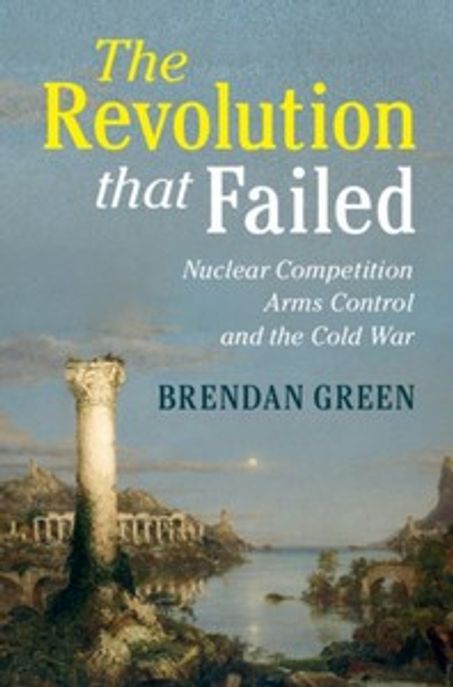
단행본
The Revolution that Failed: Nuclear Competition, Arms Control, and the Cold War
- 개인저자
- Brendan Green
- 발행사항
- New York, NY : Cambridge University Press 2020
- 형태사항
- 278 p. : 24cm
- ISBN
- 9781108489867
- 청구기호
- 327.1 G786r
- 서지주기
- Includes bibliographical references and index
소장정보
| 위치 | 등록번호 | 청구기호 / 출력 | 상태 | 반납예정일 |
|---|---|---|---|---|
이용 가능 (1) | ||||
| 1자료실 | 00019960 | 대출가능 | - | |
이용 가능 (1)
- 등록번호
- 00019960
- 상태/반납예정일
- 대출가능
- -
- 위치/청구기호(출력)
- 1자료실
책 소개
The study of nuclear weapons is dominated by a single theory - that of the nuclear revolution, or mutual assured destruction (MAD). Although such theorists largely perceive nuclear competition as irrational and destined for eventual stalemate, the nuclear arms race between superpowers during the second half of the Cold War is a glaring anomaly that flies in the face of this logic. In this detailed historical account, Brendan Green presents an alternate theoretical explanation for how the United States navigated nuclear stalemate during the Cold War. Motivated by the theoretical and empirical puzzles of the Cold War arms race, Green explores the technological, perceptual, and 'constitutional fitness' incentives that were the driving forces behind US nuclear competition. Green hypothesizes that states can gain peacetime benefits from effective nuclear competition, reducing the risk of crises, bolstering alliance cohesion, and more. He concludes that the lessons of the Cold War arms race remain relevant today: they will influence the coming era of great power competition and could potentially lead to an upsurge in future US government nuclear competition.
A theoretical analysis and historical investigation of the Cold War nuclear arms race that challenges the nuclear revolution.
A theoretical analysis and historical investigation of the Cold War nuclear arms race that challenges the nuclear revolution.
목차
Introduction: a revolution, or what?; 1. The nuclear revolution revisited; 2. The delicacy of the nuclear balance; 3. Comparative constitutional fitness; 4. Testing the argument against its competitors; 5. Nixon and the origins of renewed nuclear competition, 1969?1971; 6. Nixon, Ford, and accelerating nuclear competition, 1971?1976; 7. The rise of nuclear warfighting, 1972?1976; 8. Carter and the climax of the arms race, 1977?1979; 9. The revolution that failed.


